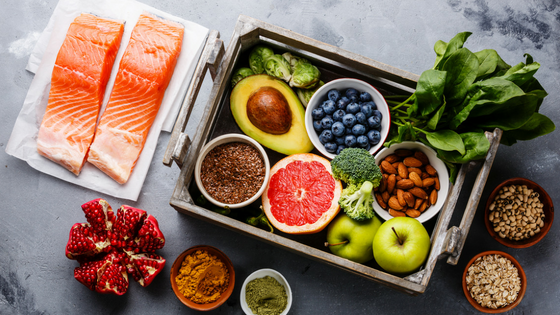
The Heart Feeds Itself First
Share
Your heart: that little machine in your chest, pumping blood for you all day, all night, through excitement and stress. Our other muscles take rest and night, but not the heart. How does our body make sure the heart gets what it needs?
The heart feeds itself first. That little pump delivers blood around your whole body including to its own muscles. When your heart pumps, oxygenated blood leaves the heart through the aorta, and then supplies its own muscles with blood through the coronary arteries.
Why am I telling you this? Because in order to lead a life where you feel good physically and emotionally, we need to care for ourselves first. When we care for ourselves, we then have the energy, compassion and capability to care for others. Just like in an airplane, you need to put on your own oxygen mask first.
This also reminds me that my heart is working hard for me, and if I want it to continue doing so, I need to care for it.
Two of the most basic nutrients that are proven to improve cardiovascular health are:
- Short-chain omega-3 fatty acids from nuts, seeds and olives
- Long-chain omega-3 fatty acids (EPA and DHA) from wild, fatty, cold water fish and algea
Numerous studies show us that omega 3 fatty acids in the diet help to lower risk of cardiovascular disease.
This is not new news, and it continues to be proven again and again. So how much do we need?? For fish, the best sources are wild, cold water fish like salmon, mackerel, sardines, etc having at least 3 servings per week. If you don’t consume seafood, you will need to get these long-chain fatty acids from algae and algae oil supplements. The tricky part is that fish is a much higher source of EPA and DHA. Ideally you are getting at least 300mg of DHA and 600 of EPA daily. If someone is already at a higher risk of heart disease you can go closer to 1000mg DHA and 2000mg EPA.
Our Pure Premium Fish Oil comes close to these higher numbers with only a teaspoon of oil. If you need to use algae oil, I recommend the NutraVege 2X brand (algae version of NutraSea). The DHA and EPA are in a different ratio than in fish, but that’s ok as long as you aim for no lower than 300 DHA daily, and higher for someone at a higher risk. Always keeping in mind that a supplement does not cancel out a poor diet and lac of exercise.
For nuts and seeds, one handful daily of nuts and seeds is recommended for prevention of heart disease.
You want to focus on the ones that are higher in omega-3’s and lower in omega 6’s such as chia, walnuts, hazelnuts, flax and macadamia.
Consuming nuts, seeds and olives does not give you the same benefit as fish and algae. A healthy body can only convert up to 1% of the short-chain omega-3’s consumed into long-chain. This means that you would need to drink about a cup of flax oil per day to get enough DHA, and I do not recommend trying that at home…. or in public for that matter because it will likely give you diarrhea.
On that positive note, consume foods rich in omega-3 fatty acids for your heart. It loves you all day long and deserves some love back in the form of healthy fats.
If you want to learn more,check out more heart health related content. If you want help managing blood pressure and cholesterol naturally, call our clinic to inquire about my 3-month cardiovascular program.
Written by Lauren Duffell, RHN




